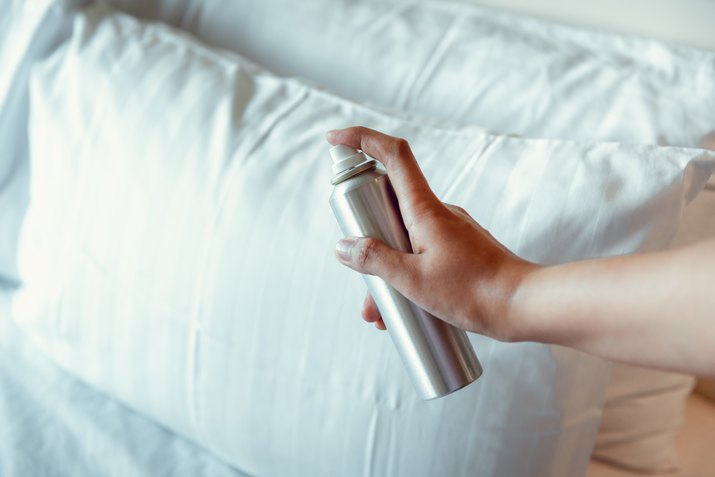
It's an unfortunate truth that despite your best efforts, there isn't a room in your house that can't (or eventually won't) present you with odor problems. Harsh cleansers can remove the source of the offending smell, and commercial air fresheners can mask unpleasant odors for a time, but many people are sensitive to them or prefer to use less-invasive items they already have around the house. Try one of these 10 DIY odor busters, instead!
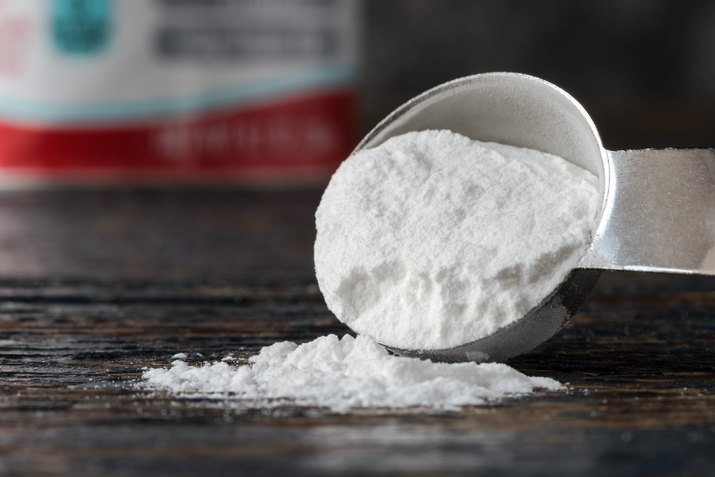
Baking Soda
Baking soda is the gold standard in home odor-fighters, partly because of its ability to absorb smells and partly because of its virtues as an environmentally-friendly cleaning product. Got pet smells in your furniture or carpet? Sprinkle baking soda, let it sit overnight then vacuum it up. You can do the same for a funky mattress, sprinkling it in the morning and vacuuming it at night before bed. Put a box in your fridge to absorb food odors, and sprinkle it into your trash cans before replacing the bag. You can even use it to quell the funk in all those shoes at the front door, so foot smell isn't the first thing that greets you when you walk in the door.
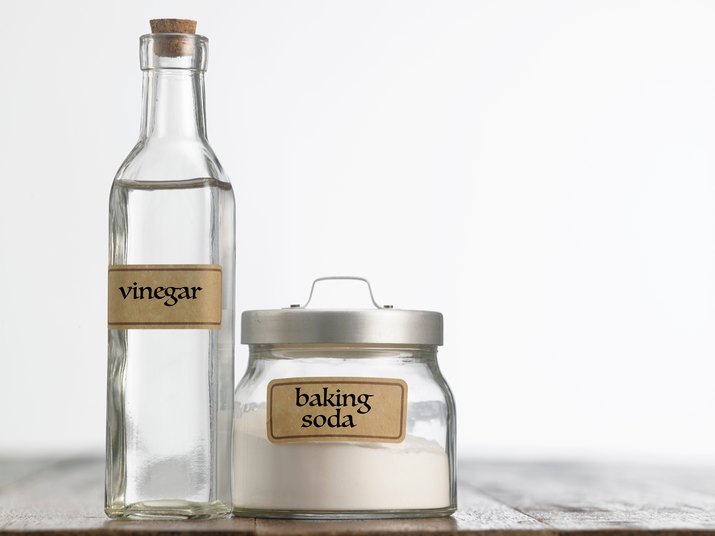
Vinegar
Vinegar is baking soda's partner in cleaning and disinfecting — the yin to soda's yang. Used full strength or diluted, it's a powerful antibacterial and antifungal for almost any surface in your house, especially in the kitchen and bath where bad smells often begin with microorganisms. Acidic vinegar is also a potent degreaser, stripping rancid, bad-smelling buildup from problem areas like the sides of your range or your vent hood. For smelly clogs in sink drains, use both soda and vinegar. Put soda down the drain, then follow it with a mix of vinegar and boiling water. The hot, bubbling foam will loosen and flush clogs, disinfect and remove smells.
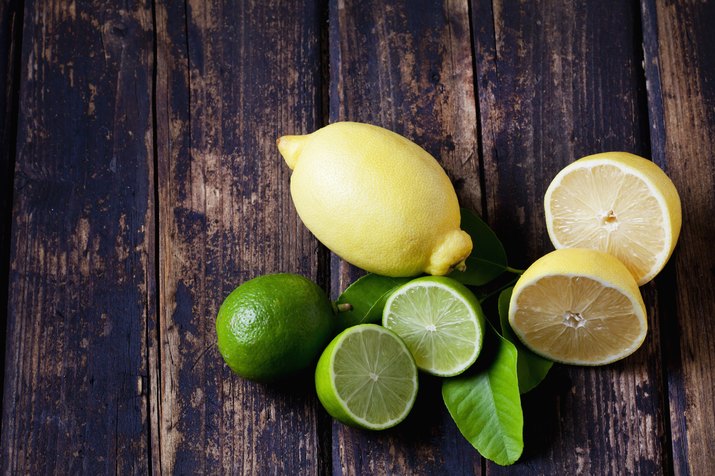
Citrus Peels and Juice
Citrus fruits provide a great home-cleaning "two-fer": Their acidity makes them a useful cleaning and disinfecting option, and their fresh, clean scent leaves your rooms smelling better. Apply the juice at full strength to fight mold in the kitchen and bath, or fill a spray bottle with diluted lemon or lime juice for wiping down and deodorizing walls and tiled surfaces. Lemon or lime juice is a potent natural degreaser in the kitchen, and will help keep rancid, greasy smells in check. You can even use the peels left over from juicing to de-funk your disposal. Drop a few down the disposal every week along with some ice cubes to keep it smelling fresh.
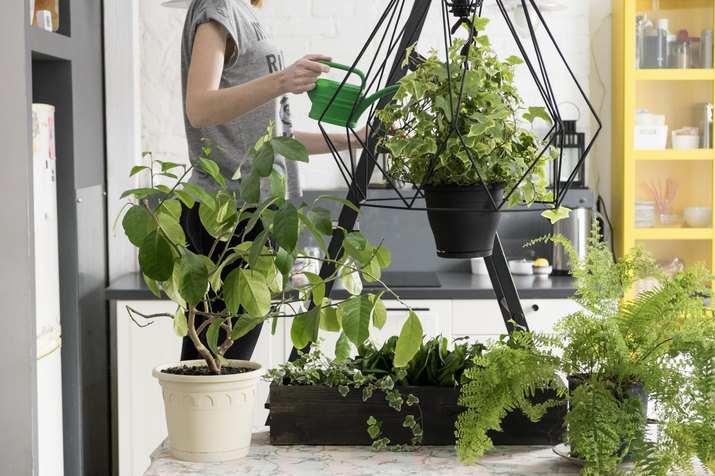
Houseplants: The Ultimate "Green" Air Freshener
The world's great forests are often called "the lungs of the planet" because of their ability to clean and freshen the air. Houseplants can do the same thing on a smaller, indoor scale, and they can bring a fresh, natural look to almost every room. Many common, easy-to-grow houseplants, including English ivy and spider plants, are well known for their ability to clean the air of toxins and pollutants. Complement them with beautifully-scented indoor plants, like scented geranium, jasmine or fresh herbs to replace unpleasant odors with bright, fresh, room-appropriate aromas.
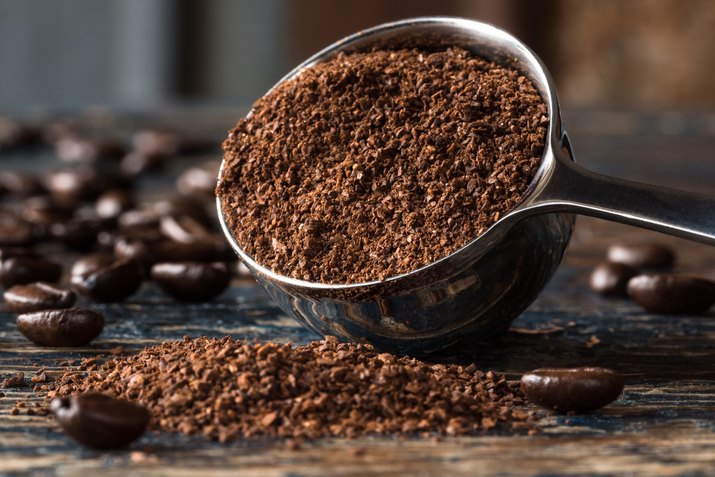
Coffee Grounds
Often, the simplest way to keep unpleasant odors away from your long-suffering nostrils is to rely on some form of odor absorption and coffee grounds are perfect. Get them ready by spreading them overnight in a shallow pan to dry. To use either unconventional deodorizer, place it in a container with a perforated lid or make a sachet by tying some up in the toe of an old stocking.
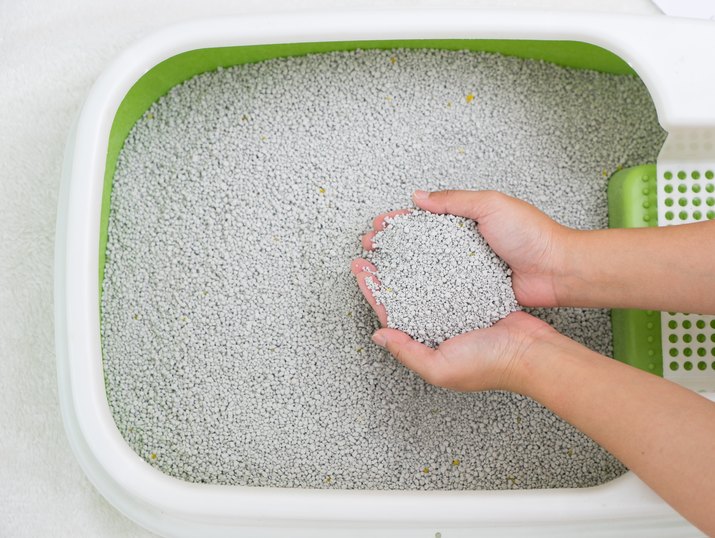
Kitty Litter
Baking soda and coffee are famously good at absorbing odors, and houseplants can help filter your air, but there are a couple of other common household items that make surprisingly good odor absorbers. One is cat litter, which has so many uses you may want to buy some even if you don't have a cat.
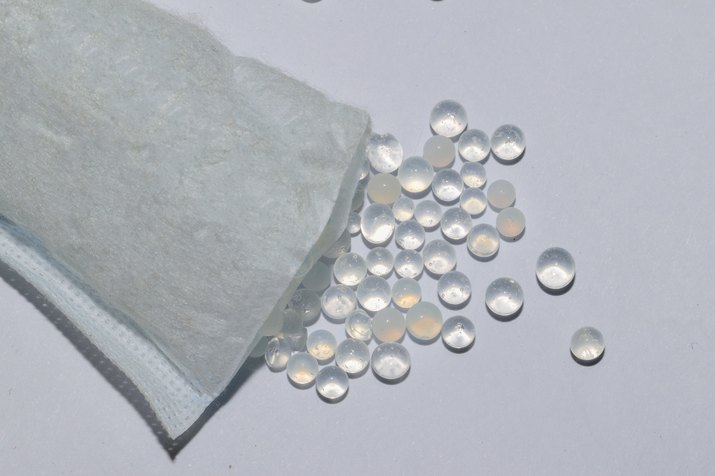
Ventilation and Moisture Absorbers
Unpleasant odors in the home are often caused by humidity and poor air flow. Addressing those can go a long way toward making your rooms smell better, but you don't necessarily need to deal with the bulk and operating costs of a dehumidifier. In closets and other enclosed spaces, moisture absorbers using silica gel can help keep things from getting damp and funky. In other parts of the house, rearranging your furniture to improve airflow can help. If you can't get a cross-breeze by opening windows, small fans will work wonders.
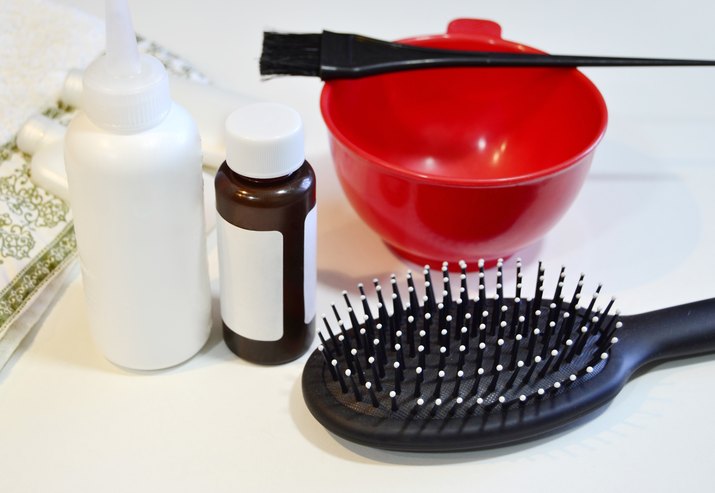
Hydrogen Peroxide
Aside from its place in your haircare arsenal, hydrogen peroxide is a useful cleaner and disinfectant around the house. It quells smells at their source by killing the bacteria and other microorganisms that make them happen. When your fridge gets funky, mist it with a spray bottle full of peroxide and wipe it down. Spray your cutting boards to kill smelly bacteria — let them dry or rinse them before you use them again — and do the same to clean sinks, walls and grout in your kitchen and bath. Peroxide will clean and disinfect the outer surfaces of your toilet, and you can even use it at full strength to bubble stuck-on nastiness from the bottom of your trash can.
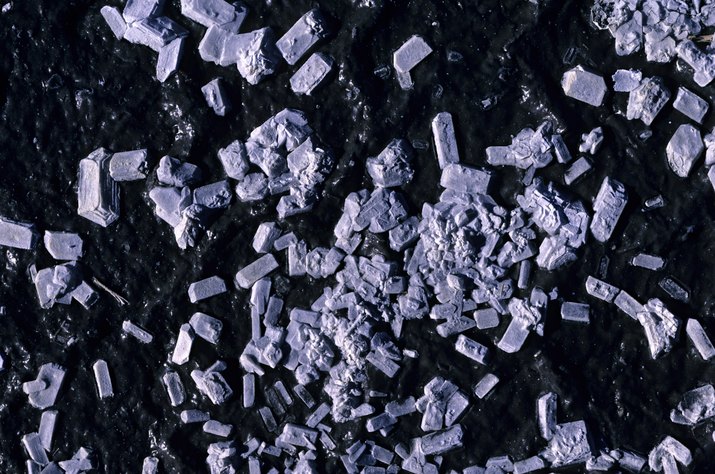
Borax
If you weren't listening when your mom or grandma told you this, borax is a great odor-fighter around the house. It's usually sold as a "laundry booster," but that doesn't really do it justice. Borax is a great all-round disinfectant and deodorizer, so it's well worth keeping a box on hand. When your towels or bed linens – especially pillowcases – start to smell funky, add borax to the wash to fix the problem. Run a cycle with borax in an empty machine to get the funk out of your washing machine or dishwasher, or use a solution of borax in water to eliminate mold in the kitchen or bath. A borax solution will also get rid of drain or disposal odors when you wash it down the sink.
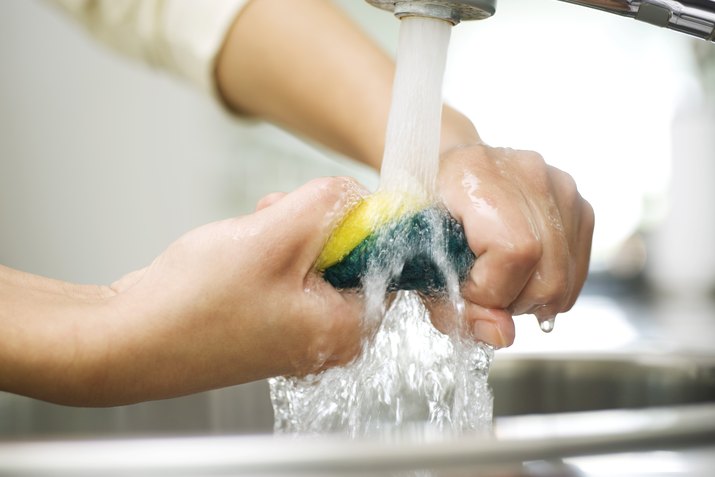
Clean Your Cleaners
The very tools you use to clean up around the house are often themselves the source of unpleasant odors. It's logical, when you think of it: You use them to clean everything else, so of course they pick up dirt and bacteria. To keep them from spreading germs and odors when you're trying to clean, disinfect them after every use. Soaking them in a bleach solution, vinegar or peroxide works well. Dish brushes can go through the dishwasher, and other scrub brushes can be soaked in disinfectant. Microwaving a damp sponge or washcloth will quickly make it hot enough to kill bacteria (use tongs to take it out). To strip any lingering funk from your washcloths, launder them with borax.
Advertisement
Video of the Day